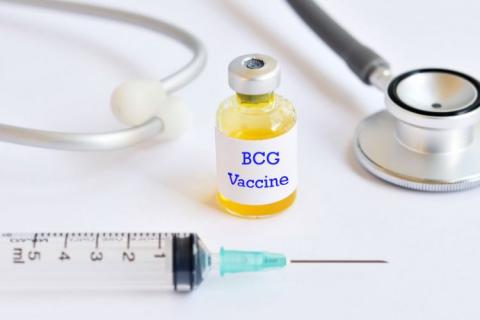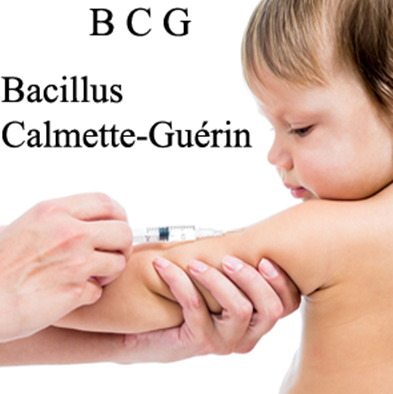Searching for Evidence in the COVID-19 Era: The BCG Case

A Preliminary Interrogation Conducted by Patricio V. Marquez [1], Albert Figueras [2],Allison Ross [3],Giovanni S. Marquez [4], and Jaime Bayona [5]
“A pestilence is not a thing made to man’s measure; therefore, we tell ourselves that pestilence is a mere bogy of the mind, a bad dream that will pass away. But it does not always pass away and, from one bad dream to another, it is men who pass away, and the humanists first of all, because they have not taken their precautions.”
Albert Camus, The Plague. Vintage, 1947.
“For the first time in history, we face the risk of a global decline. But we are also the first to enjoy the opportunity of learning quickly from developments in societies anywhere else in the world today, and from what has unfolded in societies at any time in the past.”
Jared Diamond. Collapse. How societies choose to fail or succeed. Penguin, 2005.
Across the world, the spread of the novel coronavirus disease (COVID-19) has been rapidly altering life as we know it. With more than 2.2 million reported cases and more than 150,000 deaths as of April 17, 2020 (Johns Hopkins Center for Systems Science and Engineering 2020), social distancing policies, including widespread lockdowns, have been adopted out of societal fear of the high transmissibility, often by asymptomatic people, and severity of a virus that transcends national boundaries. The global economy is experiencing an exceptional negative shock as a result of COVID-19: massive layoffs and unemployment, supply chain and market disruption directly affecting economic production, and the financial impact on firms and financial markets has been hard. All this on top of the severe negative impact on human capital, including lives, learning, basic well-being, and future productivity (World Bank/International Monetary Fund 2020). Still, despite its enormous health, social, and economic impact, much about the disease is currently unknown.
Given the novelty of COVID-19 and its clinical manifestations (Fauci, Lane, Clifford, and Redfield, 2020), as well as the speed at which the pandemic is progressing, we are constantly learning and revising our understanding of the virus and how to contain and mitigate its spread and impact, and hoping for eventual suppression. The global scientific community is conducting significant research into transmission methods, potential treatments, and vaccine candidates, resulting in a plethora of information, in some cases conflicting, for the general public to sort through.
One such finding has been the association between a country's COVID-19 reported cases and deaths and its Bacillus Calmette–Guérin (BCG) vaccination policy. BCG usually is given to newborns, protecting them especially against severe forms of TB (e.g., TB meningitis, disseminated TB). However, vaccination policies vary country to country. Countries with high TB prevalence tend to have universal BCG vaccination policies, while those with lower TB burden tend to vaccinate only high-risk groups (SAGE Working Group on BCG Vaccines and WHO Secretariat 2017).
According to a preprint, ecological study* (Miller et al. 2020), countries without universal policies of BCG vaccination (e.g., Italy, United States) have been more severely affected by COVID-19 compared to countries with universal and long-standing BCG policies. It is also shown in this study that countries that have had a late start of universal BCG policy (e.g., Iran, 1984) have high COVID-19 mortality, consistent with the idea that BCG protects the vaccinated elderly population. The results of another ecological study not yet published also show that COVID-19-attributable mortality among BCG-using countries was 5.8 times lower than in non-BCG-using countries (Shet et al. 2020). Accordingly, the authors of both studies have hypothesized that BCG vaccination might offer some protection against COVID-19, reducing the severity of the disease. Data from another study not yet peer reviewed corroborates the observation that universal BCG vaccination has a protective effect on the course of COVID-19, probably preventing progression to severe disease and death (Dayal and Gupta 2020).
Since its introduction in the 1930s, epidemiological studies have shown that BCG also protects against childhood mortality independent of its effect on TB. More specifically, the studies involving the BCG vaccine have found that it provides heterologous or "nonspecific immunological effects," altering immune response to pathogens other than Mycobacterium tuberculosis (Iglesias and Martin 2015). The findings suggest that BCG at birth has beneficial nontargeted effects on general infant morbidity and mortality in low-income countries--a BCG scar is associated with better survival and 50 percent mortality reduction due to pneumonia in vaccinated children (Roth, Garly, Jensen, Nielsen, Aaby 2006). Besides reducing non-TB respiratory infection, other studies show that the BCG vaccine reduces sepsis, and all-cause mortality among young children (de Castro, Pardo-Seco, and Martinón-Torres 2015; Higgins, JPT, Soares-Weiser, K, López-López, JA, Kakourou, A, Chaplin, K, Christensen, H, et al. 2016). It is also shown that BCG prevents upper respiratory tract infections among the elderly (Wardhana, Sultana, Mandang, and Jim 2011).
Although the mechanism, magnitude, and duration of these nonspecific effects remain uncertain, a study showed that BCG induces adaptive or trained immunity and nonspecific protection from infections through epigenetic reprogramming of innate immune cells (Kleinnijenhuis, Quintin, and Preijers 2012). The innate immune response in a person’s organism is initiated when cells of the innate immune system, including PMNs, monocytes, macrophages, and DCs, encounter pathogens. Some researchers now speculate that BCG vaccination could moderate the severity of COVID-19 infections (Dayal and Gupta 2020; Hegarty, Kamat, Zafirakis, Dinardo 2020).
While two of the above-mentioned ecological studies (Miller et al. 2020; Shet et al. 2020) observed an association between national vaccination policies and country-level deaths, it should be clear, however, that this relationship does not imply causation between the exposure and the disease. Uncontrolled confounding variables could instead explain the association, including the fact that low and middle-income countries tend to have both universal BCG policies and lower capacities to test for COVID-19. Additionally, it should be taken into account that many countries have changed their BCG policies in the past 50 years, so even within a country, immunization is not uniform (i.e., it can be different according to age).
Given what we know now, BCG vaccinations cannot prevent COVID-19 infections or reduce their severity, but the association is worth evaluating in greater depth. Additional research could provide more accurate characterizations of the relationship between vaccination and disease occurrence, accounting for variables like population demographics, testing capacity, and epidemic timelines that affect national ecological studies.
Two randomized control trials are currently underway in Australia and the Netherlands to evaluate whether BCG vaccination reduces COVID-19 incidence among healthcare workers (Murdoch Children’s Research Institute 2020; UMC Utrecht 2020). Perhaps the results of these trials will help provide much needed evidence on what works in the fight against the novel coronavirus, contributing with additional insights into the mechanisms of disease and host response.
We should keep an eye on the outcome of these trials, while recognizing that rushing to promote novel treatments before evidence of their efficacy and safety has been established can do public health more harm than good.
Note. * Ecological studies are studies of risk-modifying factors on health or other outcomes based on populations defined either geographically or temporally. The study by John Snow in 1984, regarding a cholera outbreak in London is considered the first ecological study to solve a health issue. He used a map of deaths from cholera to determine that the source of the cholera was a pump on Broad Street.
About the authors:
[1] Consultant, World Bank Group (WBG) COVID-19 Global Emergency Response Program, and former Lead Public Health Specialist, WBG
[2] Director, Fundació Institut Català de Farmacologia (Catalan Pharmacology Institute), a collaborating center of the Department of Clinical Pharmacology of the Hospital Vall d'Hebron, and associated center of the Department of Pharmacology, Therapeutics and Toxicology at the Autonomous University of Barcelona (UAB), and a WHO Collaborating Center for Research and Training in Pharmacoepidemiology. Barcelona, Spain
[3] WBG Intern, and Graduate Student, Global Health Program, Georgetown University, Washington, D.C.
[4] Former Technical Officer, PAHO/WHO, WHO AFRO, and WHO EMRO (Health Systems, Expanded Programme on Immunization and Health Emergencies in Barbados, USA, Haiti, Pakistan, and Nigeria)
[5] Senior TB/Health Specialist, WBG

